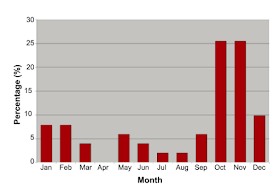Ancient Greek coin minted in Clazomenai in the early 4th c. BC, depicting the head of Apollo and his sacred bird, swan...
In 4th c. AD, Himerius in his Orations talks about the hymn to Apollo written by the 6th c. BC Greek poet Alcaeus. Here is the interesting bit:
"When Apollo was born, Zeus equipped him with golden headband and lyre and gave him also a chariot of swans to drive, and sent him to Delphi...to declare justice and right for the Greeks..."
"...but when Apollo mounted the chariot he directed the swans to fly to the land of the Hyperboreans..."
Why?
Well there is something very peculiar about Apollo's swans that might give us a (non mythological) answer to this question...
In Hymn to Delos, Callimachus says that swans circled the island of Delos seven times while Apollo was being born...Now these were not just any swans. These were singing swans...
These "birds of Apollo" were considered to be "the most musical among the birds", and were also called "singers of Apollo". The Roman author, Aelian said that "when the singers would sing hymns to Apollo, the swans would join the chant in unison"...
This is strange, considering that all the swans in Europe are mute...
All except one species: "the whooper swans"..."noisy birds...whose call is like a loud honk of a car"...
The whooper swans live and breed in far North of Eurasia (yellow). They winter in Southern and Western Europe (Blue, Green)...
They usually migrate to their winter territories around October and arrive back in their breeding territory in April.
So the singing whooper swans, were, at the time when all these hymns to Apollo were written, only found in Greece between October and April...
And in April, they would gather into flocks, fly overhead singing, and then depart towards "Hyperborea"...Taking with them Apollo in his new swan chariot...
I think this is kind of neat...
There's more...
Alcaeus, in his hymn to Apollo also says that "when the Delphians learned that Apollo went to Hyperborea, they [prayed and] called on the god to come back..."
"...Apollo, however, delivered law among the men of that region for a full year; but when he thought it was time...he ordered his swans to fly back again from the Hyperboreans...and it was summer and indeed the very middle of summer when Apollo came back from the Hyperboreans..."
This of course can happen in mythology...In reality, Apollo's swan chariot could only come back to Greece in October, during whooper swans winter southward migration...
This part of Alcaeus's hymn is very interesting, cause it actually confirms that it was indeed in October that Apollo "ordered his swans to fly back again from the Hyperboreans":
"When Apollo returned from Hyperborea, Kephisos (Cephisus) [a river of Phokis and Boiotia] rises in flood surging with waves...for...even the water could sense the presence of [the] god..."
Now I don't know if we are talking about the same Kephisos, but "The oldest tradition in the region now called Argolis is that once three rivers Inakhos, Kephisos and Asterion, judged who should rule the land, Poseidon or Hera..."
"They decided that it belonged to Hera, and so Poseidon made their waters disappear. For this reason neither of these rivers provides any water except after rain. In summer their streams are dry..."
So in reality Cephisus could not have flooded during "mid summer"...Here is the climate in Peloponnesus. See, dry summer...
So when does Cephisus "rises in flood surging with waves"? Well, in this article entitled "An inventory of flood events in Athens, Greece, during the last 130 years. Seasonality and spatial distribution" there is this chart showing "Monthly distribution of flood events in Athens basin (1880–2010)" of the Kifisos river...Guess when it's most likely for Kifisos river to flood...Oct/Nov of course...
I couldn't find any other similarly named river...But even if Cephisus and Kifisos are not the same river, they are rivers from the same locality and the same climate and will have the same water flow...
So the only time when river Cephisus could "rise in flood surging with waves" to welcome Apollo arriving back from Hyperborea in his chariot pulled by singing swans, was exactly when whooper swans come to Greece, in October...
Strangely, in Greek mythology, Apollo spends winter in Hyperborea and summers in Greece, the opposite from happens in nature...He must have used some other means of transport in order to achieve that...
PS: In order for Apollo to hitch the ride to Hyperborea on a swan chariot, he had to be born before the whooper swan departure in April...And not on the seventh day of the month Thargelion, which corresponds to May/Jun...Just saying...So maybe I should look into his birth more closely to see if there is anything else that can help us pinpoint the actual date of his birth...







No comments:
Post a Comment